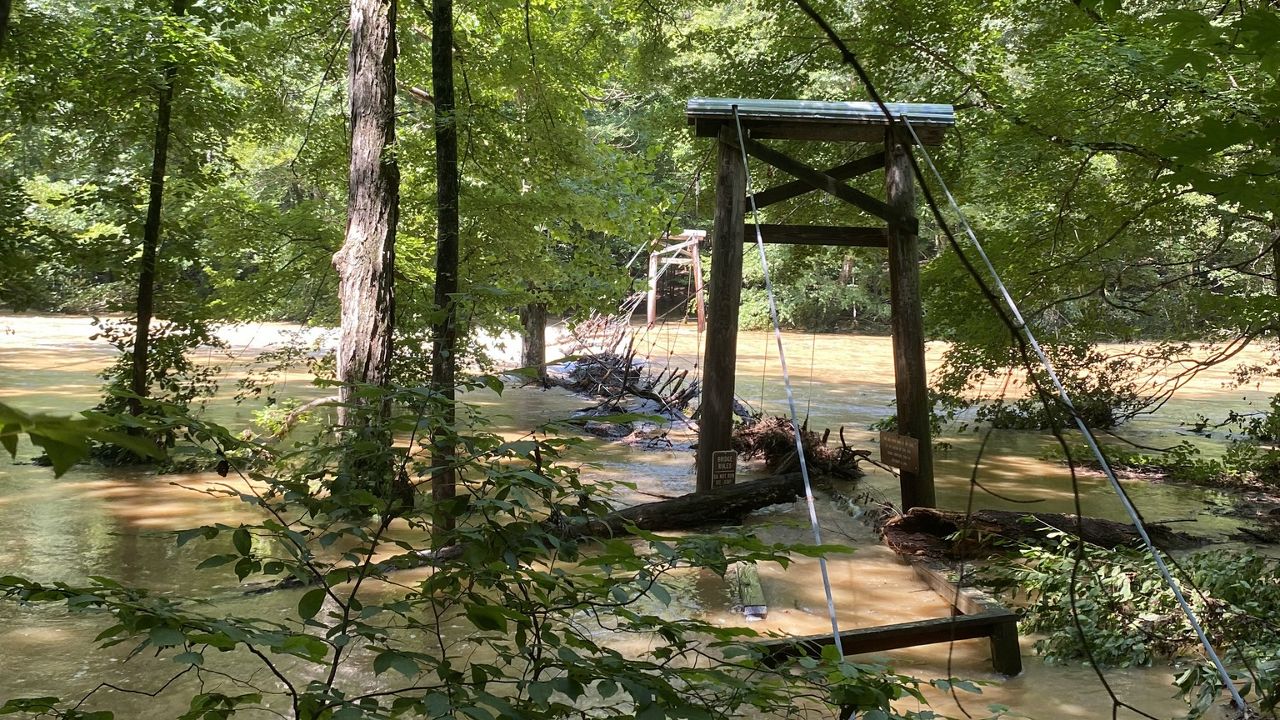CHARLOTTE, N.C. — North Carolina is getting $1 billion to help build a new high speed passenger rail line that will connect Raleigh to Richmond, Virginia.
The “S-Line” has been in the works for nearly two decades. Thanks to a new grant from the U.S. Department of Transportation, the project is closer to becoming a reality.
The grant money comes from the Bipartisan Infrastructure Law that passed in 2021.
The broader plan includes another section of high-speed rail to run from Charlotte to Atlanta.
Ry Elkins is from Locust Grove, Georgia, a suburb outside of Atlanta.
He lives in Charlotte and drives to his hometown about two to three times a year to see his family.
“I’m not a big fan of driving just to begin with,” Elkins said. “And it’s the sitting and doing nothing for five hours just drives me insane.”
A new $3.5 million federal grant is going toward studies to expand rail service in North Carolina, which includes the possible high-speed passenger rail line that could connect Charlotte to Atlanta.
“Being able to be picked up within 2 and a half hours to 3 hours versus the 5-hour drive or 6 and a half hours on Amtrak right now – it’s just mind-blowing,” Elkins said. “I’m so excited, and I hope it gets done.”
Elkins says the existence of a high-speed train would certainly change how often he sees his family.
“If we had highspeed rail, it would be easily 4-5 times a year, people’s birthdays would be easier, holidays would be easy not sitting in traffic,” Elkins said.
The Atlanta to Charlotte line is part of a larger plan to run high speed rail that will eventually connect the Carolinas, Virginia and Washington D.C.
“And I think it’s going to be a huge driver for tourism, but I also think it’s going to be great for people here in Charlotte,” Elkins said. “Because so many of us are not actually from Charlotte, we’ll be able to get places without having to take a flight, pay that much, deal with the airport or sit in a car for 6 to 12 hours.”
The Charlotte to Atlanta line is still in the early phases. However, Elkins says he’s optimistic that one day he can ditch the roads for high-speed trains.
“If we can have more places that we can go other than Salisbury, Greensboro, or Raleigh,” Elkins said. “And if we can get there a lot faster, you’re going to see a lot more people taking trains, getting off the roads, reducing emissions, reducing car crashes, all that kind of stuff will come along with it.”
In addition to the Atlanta-Charlotte rail line, other grants are going toward studies to expand rail service in North Carolina.
One study will look at reviving passenger rail service from Raleigh to Wilmington, and another looks into connecting Asheville to the existing Raleigh to Charlotte service.










